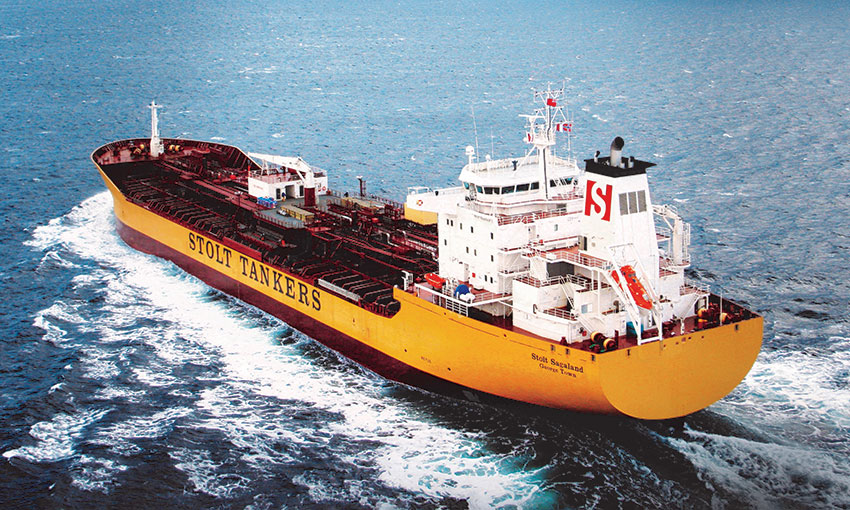CHEMICAL tanker Stolt Inspiration recently completed its transatlantic voyage partly powered by a marine biofuel produced from sustainable and certified feedstocks.
During the crossing from Rotterdam Houston, the key objective was to understand the impact of the biofuel on consumption, power and reliability in both engines and boilers.
Stolt reported that initial trial results were very positive, the equipment performed as expected and the use of the second-generation biofuel resulted in an 85-90% reduction in well-to-exhaust carbon dioxide emissions when compared to traditional fuels. The Stolt Tankers team continues to investigate the viability of biofuels, considering availability and costs which are typically around 10% higher than existing fuels.
Stolt Tankers president Lucas Vos said, “It’s great to see the positive results of the biofuel trial. We are exploring several alternative fuels for our fleet as the industry moves towards a carbon-neutral future. We are committed to working with other leaders to explore innovative technologies to reduce our environmental footprint, while continuing to provide customers with the highest levels of quality and safety that they expect from us.”
Stolt Inspiration bunkered the biofuel, derived from used cooking oil, tallow and waste animal fats, in Rotterdam in April. The biofuel used is functionally equal to petroleum-derived marine fuels, and no modifications to the engine or the fuel infrastructure were required.

